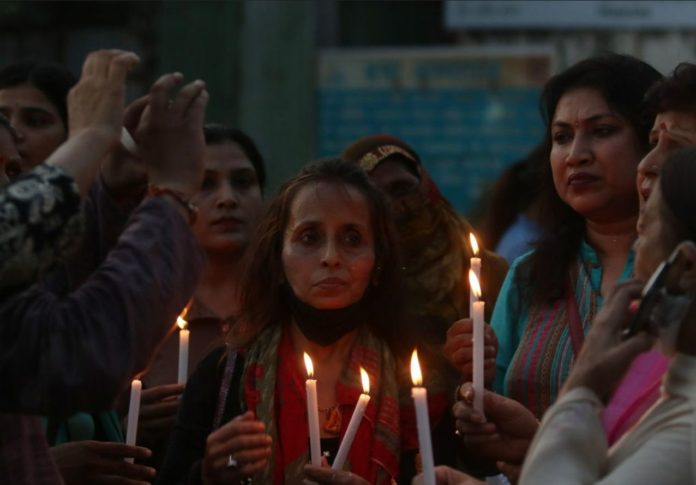In India, violence against women is common but rarely recorded.
The Delhi High Court is now debating whether or not marital rape should be considered a crime. In India’s law, there is one exception: rape in marriage is forbidden. The Delhi High Court is now debating whether or not the exception should be lifted.
The petition was submitted by two individual plaintiffs and two NGOs. Chitra Awasthi, representing the RIT Foundation, says: “So many women told us what was done to them. That’s when I realized that marital rape is a big problem in our society. And nobody talks about it.”
Awasthi submitted her petition almost seven years ago and is now being negotiated – India’s courts are notoriously overloaded.
Proponents argue that consenting to sex is not a simple matter in a marriage. Attorney Rebecca John argued in court one in which the partners were not equal.
“This is not an exception, it is an exemption. It is in the nature of an immunity and it is my argument that it is purely fictional,” John said.
In England itself, the exception was lifted in 1991. India is one of 34 countries in the world where marital rape is still not a criminal offense.
The hearing before the court in Delhi is also attracting attention because a counter-movement has formed on social networks. Young men called on people to stop getting married using the hashtag #MarriageStrike. They believe that as husbands they are now under general suspicion. Conservative circles in India fear the institution of marriage would be damaged if the rape exemption were dropped. Despite high economic growth and urbanization, India’s society has remained very traditional – this is also reflected in the image of women.
Almost every morning Indian newspapers report on sexual violence against women. The capital Delhi is considered particularly dangerous. In the past year alone, the number of rapes rose by 20 percent to 1,725, the Times of India recently wrote. In 2012, the gang rape of a student on a public bus made international headlines. The crime was unsurpassed in cruelty, dominating the media and preoccupying the public for weeks. As a result, rape laws have been tightened, and every year when crime statistics come out, the media reminds of India’s problem with sexual violence.
In her book Whole Numbers and Half-Truths, data journalist Rukmini S. warns against drawing hasty conclusions from Delhi’s rape statistics. She examined the transcripts of 460 rape cases in Delhi in 2014. These reveal: In 298 cases, the sex was probably consensual. In the majority of cases, the families had filed complaints – the daughter had run off with a man who was not the intended husband. Marriages in India are often arranged by parents within caste or religious communities. There are hardly any divorces.
The data also shows that only a small proportion of rapes are committed by strangers. Rather, women experience sexual violence in India where the statistics hardly capture it: in the neighborhood or in their own four walls. According to India’s latest National Family Health Survey, one in three Indian women has experienced domestic violence or sexual violence. Data journalist Rukmini S. writes in her book that 95 percent of the sexual violence experienced by women in India occurs within marriage. The journalist compared the figures from the national health survey with the police statistics.
“Very, very optimistic”
The abolition of the exception to rape in marriage seems all the more urgent to the plaintiffs. “The women who experience something like this – not only their bodies are injured, but also their minds and their souls,” says Chitra Awasthi of the RIT Foundation. It is currently possible to report a husband for domestic violence. However, many women do not report sexual violence in marriage, out of fear not only of their partner but also of the police.
Since the 1970s there have been police posts in India where only women work. Since 2013, the number has increased massively, and today they are everywhere in the country.
With success: A study recently calculated that where there are such police posts, 29 percent more women report abuse.
Chitra Awasthi believes that society in India is reforming step by step. She is “very, very optimistic” about the verdict of the Supreme Court in Delhi. It is expected this year.
Image Credit: Getty
You were reading: This Type of Rape Is An “Exemption” In India
